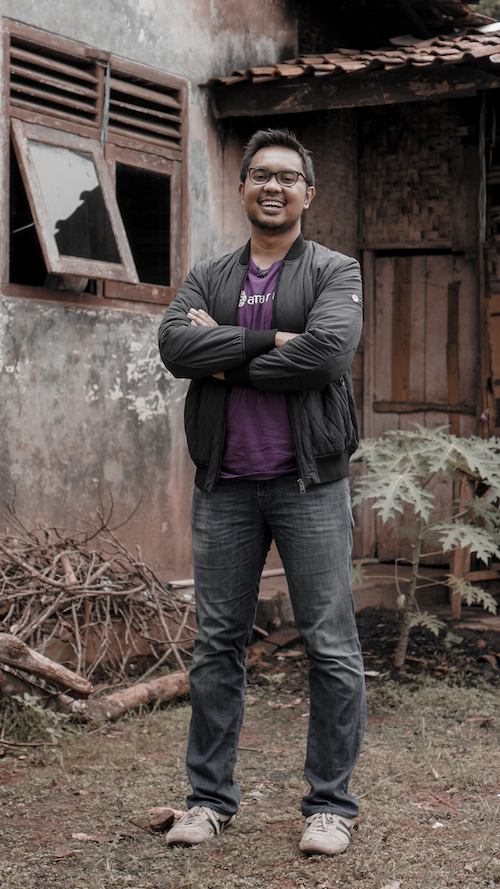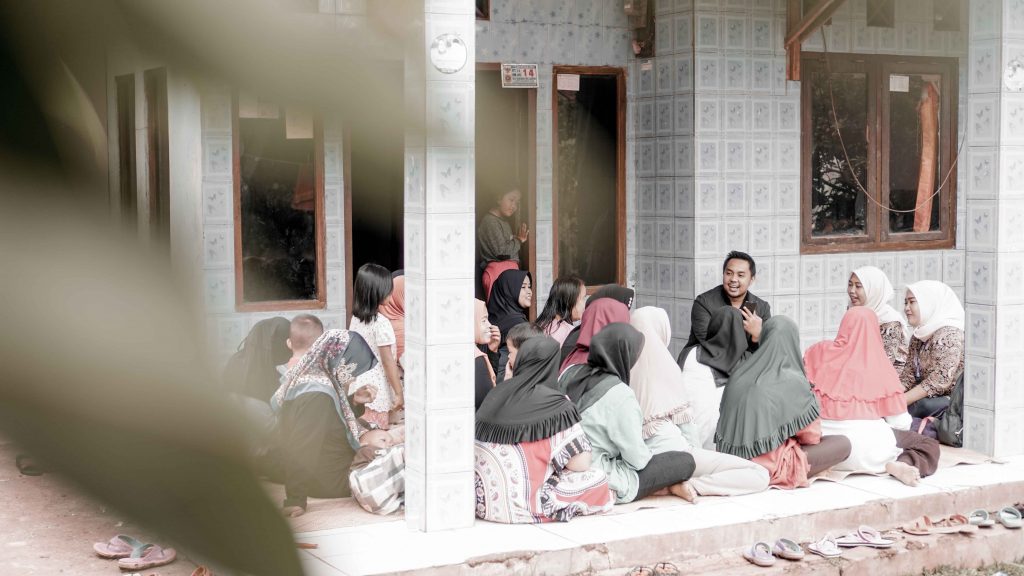Andi Taufan Garuda Putra was only 23 years old when he launched Amartha in 2010, focusing on providing loans to women entrepreneurs in rural areas, but today, the firm has transformed into one of the most prominent fintech companies in the country.
Amartha, which started as a microfinance company, transformed into a peer-to-peer (P2P) fintech lending firm in 2016 to accelerate its mission about “bringing prosperity to everyone”, Taufan said to KrASIA. He added that empowering micro, small, and medium enterprises (MSMEs), especially women entrepreneurs, is essential to drive economic growth and prosperity in Indonesia’s villages.
Currently, Amartha’s services have already covered all districts and villages in the Java island, and the firm expanded operations to Sumatra and Sulawesi last year.
In December 2019, the startup raised an undisclosed amount of Series B funding led by Line Ventures. Although no financial details were disclosed, Taufan hinted that his firm collected a “two-digit million dollars” investment.
Taufan made headlines in November when he was named as President Joko Widodo special staffer, along with Ruangguru’s CEO Belva Delvara and five other young professionals from various fields.
“I met with President Joko Widodo at several events during his first term to discuss fintech development in Indonesia and support to our MSMEs. I am honored with this new role and excited to work closely with the government to advance Indonesia’s micro and small entrepreneurs,” he said.

KrASIA sat down with Taufan to learn more about Amartha and his new prestigious position in the government.
KrASIA (Kr): How did Amartha start?
Andi Taufan (AF): Amartha started in 2010 by providing microcredit of IDR 500,000 (USD 36.4) for women located in a village in the West Java city of Bogor. After we channeled these loans to one group of women, we learned that empowering women would bring significant improvement to their families. Not only they were able to start and grow their business, but this financial service also helped to improve their family’s welfare in the long run.
The micro group loan model was taking off in Bangladesh back then thanks to Grameen Bank and it was also adopted in India and Latin America. However, it was not as popular in Indonesia, so I saw an opportunity there.
Initially, we got the money from bank partners. However, as the business grew, the demand rapidly increased to the point that we couldn’t fulfill it. Therefore, I pivoted the business model into P2P fintech lending in 2015, serving as a middleman between lenders and borrowers, and applying a profit-sharing system once the loan and interest were repaid.
Kr: Why did you decide to focus on women entrepreneurs?
AF: We started humbly with only five team members. We dove straight into the field and sat down with these women and listened to their stories. If you go to rural areas during the daytime, you’d only find women, as men would be out to work in construction or as security guards. However, these women were not only sitting around the house, but many of them were also actively working as small kiosk keepers or doing crafts at home, among other jobs, but all of their businesses couldn’t grow due to limited access to credit.
We realized that microcredit was something new for them, so we assisted them in processing and utilizing the loans. At the beginning of Amartha, I went around the village to take surveys on their families’ monthly earnings and expenses, and I would ask them about how they would use the loans, which became the foundation of our credit assessment.
Kr: How does your microcredit model work? And what makes Amartha different from other lenders today?
AF: To apply for the loans, borrowers need to form a group of 15 to 20 people, so they can help each other to repay later. Shared responsibility is the core value of Amartha. Before we disburse the money, we’ll give them compulsory group training where we teach them about financial literacy and sustainable ways of doing business.
Back then, we only had 200 borrowers so I’d do the training myself. Today, we have around 2,300 field officers who we call business partners. Given that the majority of our borrowers are offline and don’t have access to digital platforms, our business partners will meet with borrowers every week to collect and disburse payments in cash, and discuss their businesses’ progress. We build and maintain a “real” relationship with borrowers which makes us different from other P2P fintech lending platforms.
Kr: How is Amartha growing so far and how your company has impacted the lives of borrowers?
AF: We have disbursed around IDR 1.7 trillion or USD 122.6 million to more than 360,000 women micro-entrepreneurs from over 50,000 lenders. Our credit volume grew three times from 2018 to 2019.
According to our 2019 research in collaboration with the Center for Digital Society (CfDS) by Universitas Gadjah Mada, our partners’ income increased by up to 80% after joining Amartha, from an average of only around IDR 1 or 2 million per month, to over IDR 5 to 10 million (USD 358 to USD 719) per month, which is way above Jakarta’s minimum wage.
Moreover, 76% of Amartha’s partners said that they can now pay their kids’ tuition with their own income. Their businesses are growing, and therefore, they can offer more job opportunities to the surrounding community.

Kr: Amartha has been already around for ten years, what was your lowest moment and what is now your biggest challenge?
AF: I started the business with a co-founder in 2010 but since the business was growing slowly, he decided to leave the company in 2013. Another friend came on board afterward but he left not long after to pursue his education. It was hard for me because finding the right partners is not easy.
Another lowest moment happened between 2014 and 2016, when our conventional microfinance model hit a roadblock. We only had IDR 200 million (USD 14,336) loans while the demand was IDR 500 million back then. We couldn’t fill the gap so we lost many active borrowers. Even when we decided to pivot the business model into a fintech, it wasn’t an easy journey. We launched Amartha fintech officially in April 2016 and less than ten people showed up at the launch. People weren’t familiar with fintech back then as there were only ten other players in the field. Surprisingly, we were able to collect IDR 10 billion (USD 716,920) in loans only three months after the launch, which gave us big hope and faith for the company.
Today, our biggest challenges are the limited internet resources in rural areas, and how to transform people’s cash habits into more cashless practices. To address these issues, we plan to build a digital ecosystem in rural areas by collaborating with fellow tech companies focusing on small kiosk empowerment, logistics, and mobile payments.
Kr: What are some of your tasks as the President’s special staffer and how do you divide your time and focus?
AF: The President has been supporting me and the other fellow special staffers to work on our respective fields to keep up with what’s going on in the industry. I am assisting the President in the empowerment of MSMEs, specifically about how they can scale up with technology and compete globally by exporting locally made products.
The government is currently working on a “ready-to-work card” program where we help young people, particularly those who graduate from vocational high school, to prepare them for entry to the professional workforce or become entrepreneurs. The aim is to ensure that millions of Indonesian youths can become a productive generation that will drive the nation’s economy.
All members of Amartha’s team are very supportive of this appointment as it aligns with our mission to “make prosperity prevails for everyone”. This new role is expected to further accelerate our goal to create a bigger impact on society.
